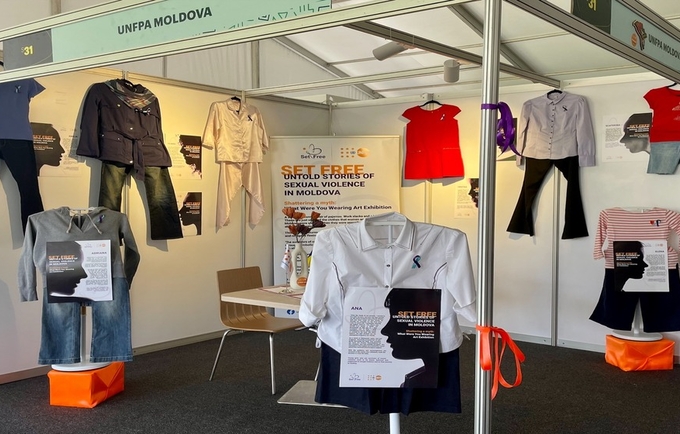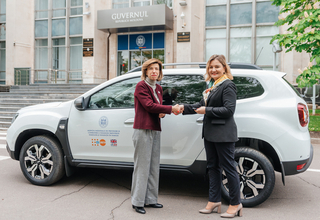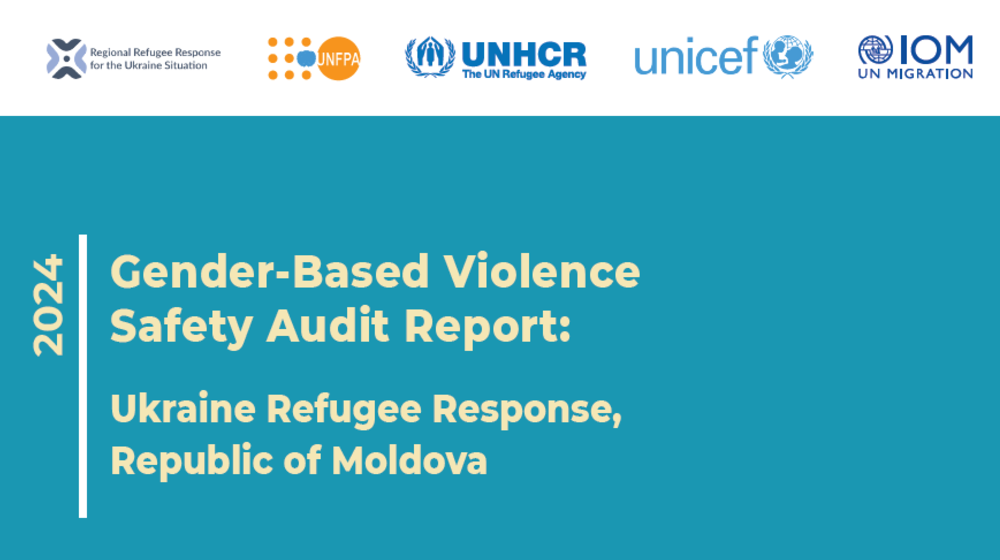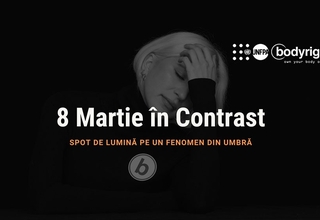Kigali/Rwanda, July 20, 2023 - More than 6,000 participants from all around the world – human rights activists, youth, state officials, diplomats, UN representatives, non-governmental organizations, the private sector, gathered in Kigali, Rwanda, from July 17-20, for the eighth edition of the „Women Deliver” conference. This high-level reunion is a unique platform for discussion and exchange of experience between countries to advance gender equality, promote sexual and reproductive rights and eliminate gender-based violence.
Under the motto „Spaces. Solidarity. Solutions”, the „Women Deliver 2023” conference brought into discussion the situation of gender equality in different countries and drew attention to the urgency of fulfilling women's rights for social progress. From secondary education, which is illegal for girls in Afghanistan, to female genital mutilation and early marriages in some African countries, to the difficulties faced by women in Europe to balance work and family life due to gender stereotypes, all issues were discussed in more than 200 panels and events, which took place during the four days of the conference.
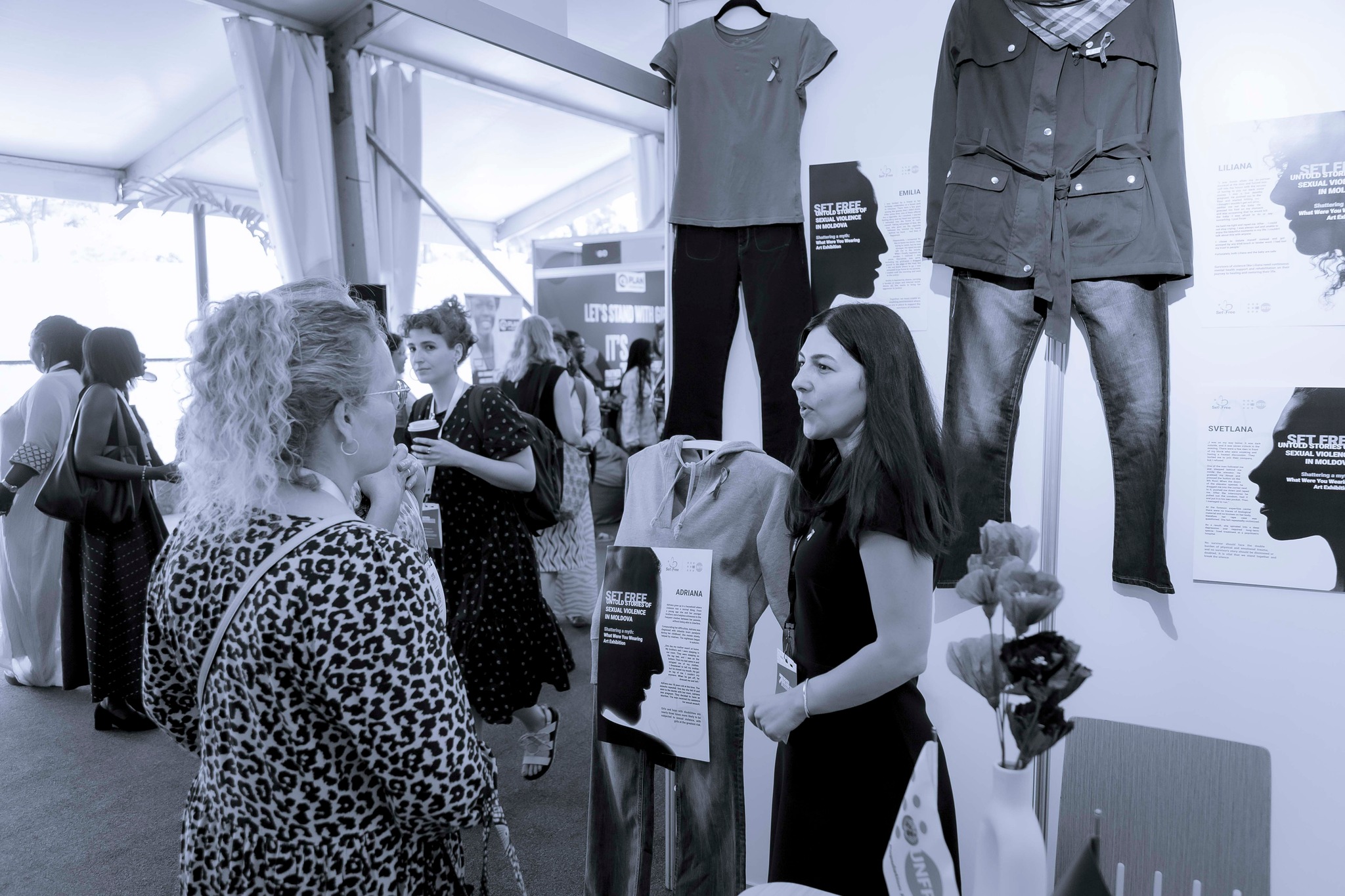
The office of the United Nations Population Fund (UNFPA) in the Republic of Moldova presented the art exhibition „Don't blame the clothes”, focused on sexual violence, and existing stereotypes, to draw the global attention to this phenomenon. Gender-based violence affects women all over the world, being found in both developed and developing countries. In the Republic of Moldova, almost every second woman has been subjected to some form of violence - physical, psychological, economic, or sexual - at least once in her life.
The exhibition „Don't blame the clothes” organized by UNFPA Moldova, in partnership with the Women's Law Center and the International Center „La Strada Moldova” presents the stories of women from the Republic of Moldova and refugees from Ukraine and the clothes they wore at the time of the abuse, in order to dismantle the myth that clothes are to be blamed for sexual assaults.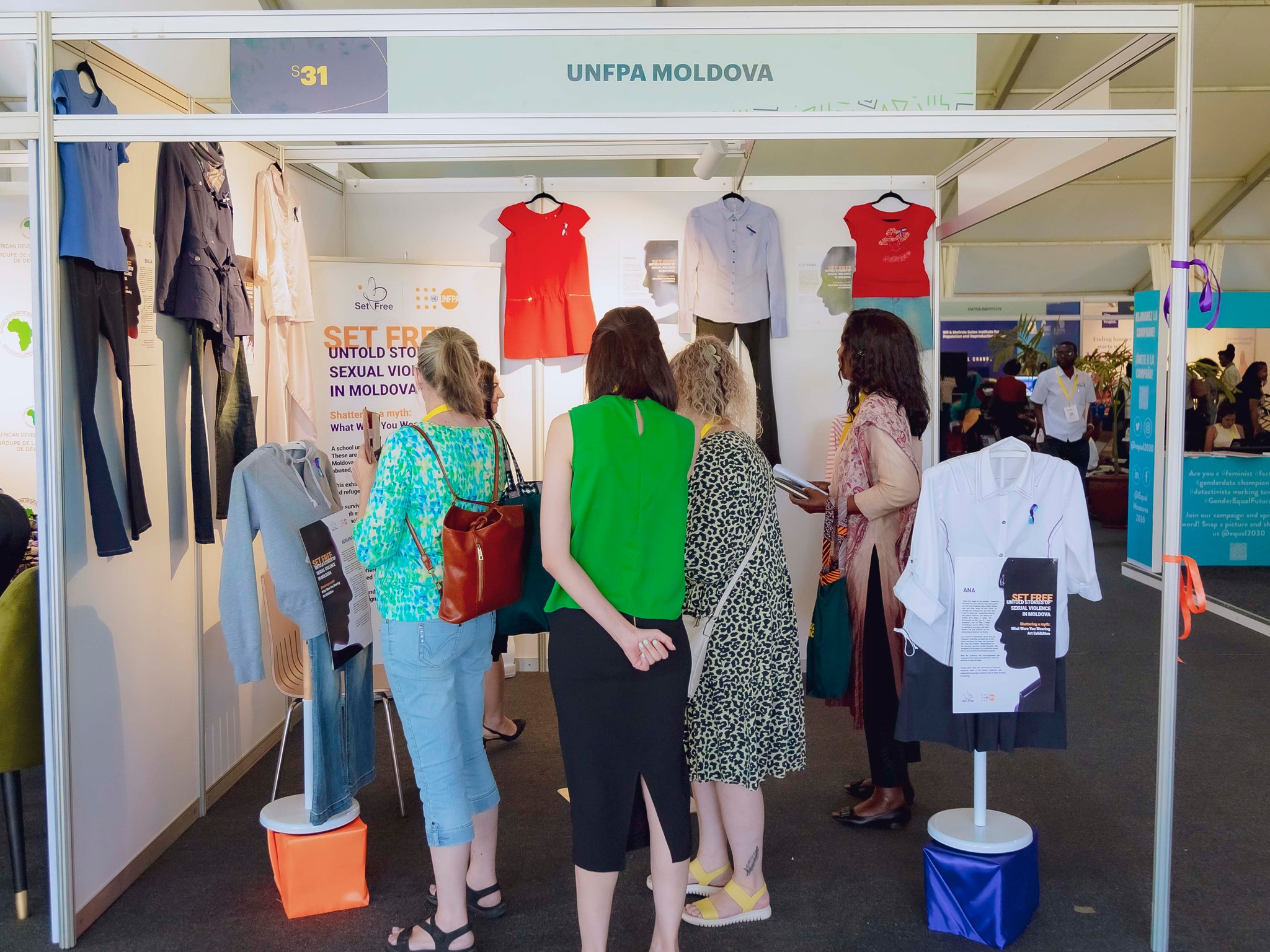
Unfortunately, in our country, as in other countries around the world, this stereotype still persists, and more than 40% of men believe that women and clothes are to be blamed for the rape. The life stories presented in the exhibition break this stereotype, and prove the opposite - it's not about the clothes, it's about the attitude.
Conference attendees and visitors connected with survivors' real stories, experienced their emotions, and some countries expressed their intention to replicate the exhibit to support the anti-prejudice movement and encourage other women to speak up and seek help.
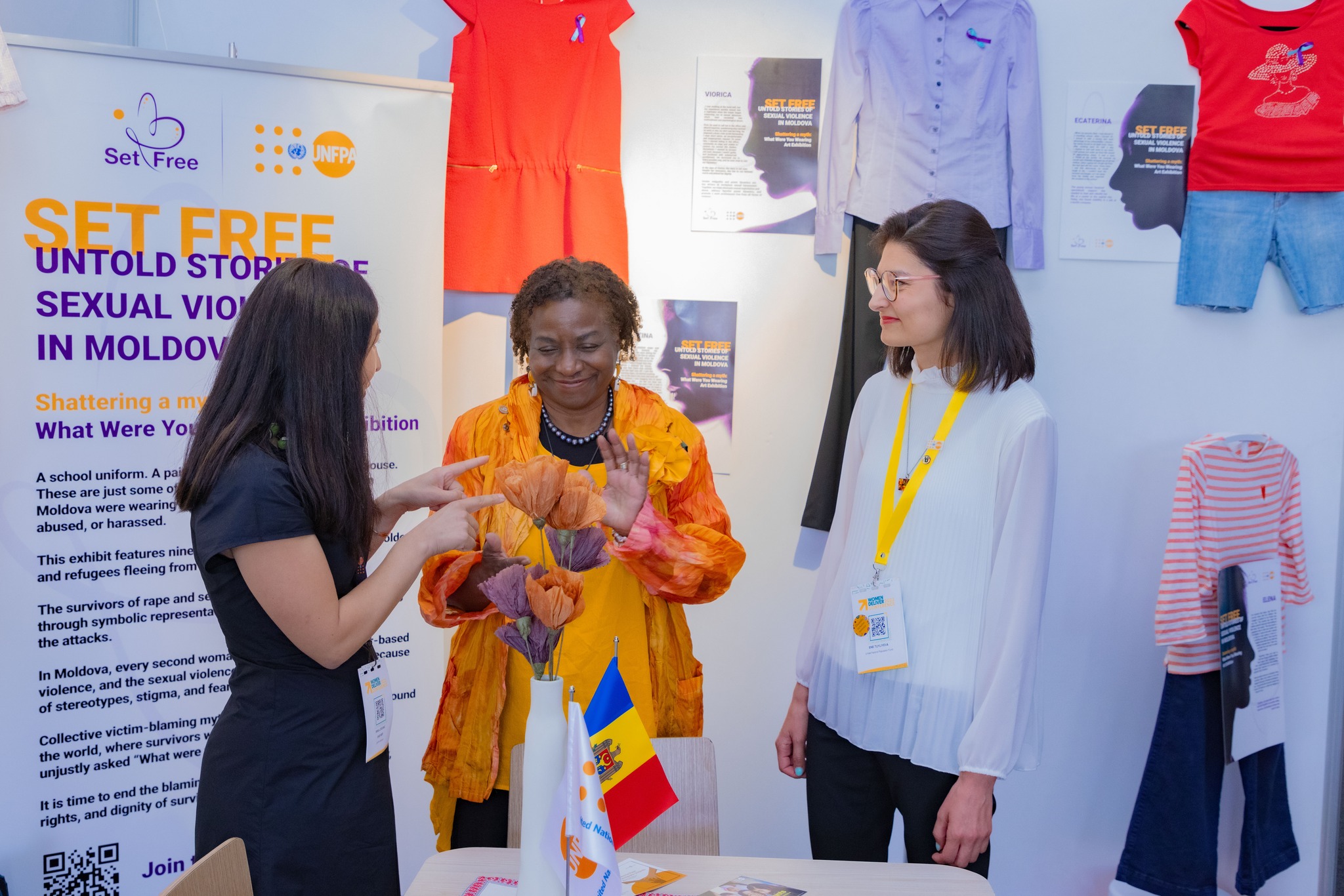
Dr. Natalia Kanem, UNFPA Executive Director, noted that „sexual violence, especially during wartime, is one of the most horrific forms of violence that undermines the bodily autonomy of girls and women and represents a serious violation of human rights. Collective efforts and resources are needed to increase the fight against sexual violence, support women to turn to support services and hold perpetrators accountable”.
The event aligns with the campaign „Set Free: Untold stories of sexual violence", launched by UNFPA Moldova and other partners, with the aim of mobilizing public discussions and actions to prevent sexual violence, combat prejudices and protect the survivors.
